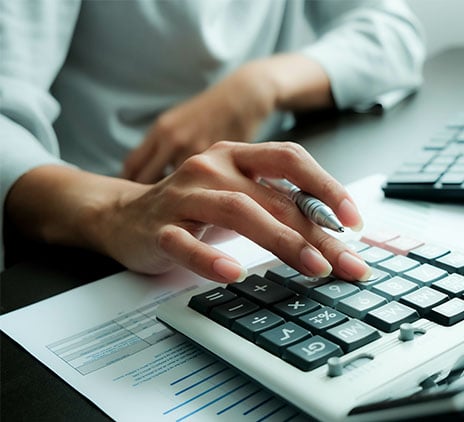


View as PDF
The 2025 fiscal year, known as Reiwa 7 in Japan, brings several changes to the corporate tax landscape. These reforms aim to enhance corporate competitiveness, encourage investment, and ensure fair taxation. This bulletin outlines the key aspects of the Reiwa 7 corporate tax reforms, based on the latest publications by the Japan Ministry of Finance.
1. Key Changes in Corporate Taxation
1) Extension and Modification of Special Measures for SMEs
(1) Reduced Tax Rates for SMEs
The special measure that applies a reduced tax rate of 15% under Art42-3-2① of Special Tax Measures Act (down from the standard 19% in Art 66➁ of Corporation Tax Act) on annual income up to 8 million yen for small and medium-sized enterprises (SMEs) has been extended for two more years. However, for businesses with annual income exceeding 1 billion yen, the reduced tax rate is increased to 17%. Additionally, certain corporations, such as investment corporations, are now excluded from this special measure. Further, SMEs in Group Relief System are excluded.
The change is applicable from a business year starting on or after April 1, 2025.
(2) SME Investment Promotion Tax System
The SME Investment Promotion Tax System, which allows for special depreciation or tax credits when SMEs acquire specified machinery and equipment, has been extended for two years. SMEs 50% or more of which outstanding shares equity investments is owned by a large corporation or 75% or more of those is owned by two or more of large corporations are excluded from the tax regime as a deemed large corporation.
In the reform, where SMEs are qualified agricultural land ownership corporations under the Cropland Act and 50% or more of which of which outstanding shares equity investments are owned by a certain authorized corporations including local government bodies, agricultural corporative etc., such ownership is excluded in determining whether or not SME is a deemed large corporation.
Applicable to assets put in business by March 31, 2027.
(3) Special depreciation or tax credit system for SMEs acquiring specified management enhancing equipment, etc.
This system, which provides incentives for SMEs undertaking equipment investment based on certified plans under the SME Management Enhancement Act, has been extended for two years with specific revisions. For productivity-enhancing equipment (Type A), the criteria now require an annual improvement of at least 1% in indicators such as production volume per hour, yield rate, or input cost reduction rate. For profit-enhancing equipment (Type B), the investment profit ratio requirement in investment plans has been raised to 7% (from the previous 5%). Additionally, for SMEs aiming for sales of JPY 10 billion , "buildings" have been added to the list of eligible equipment, among other enhancements on the condition to prepare roadmaps to achieve JPY 10 billion annual sales.
Applicable to assets put in business by March 31, 2027.
2) Introduction of Defense Special Corporate Tax
To secure funding for strengthening defense capabilities, a new Defense Special Corporate Tax (tentative name) has been introduced. This tax imposes a 4% surtax on the corporate tax amount after deducting 5 million yen. It applies to business years starting on or after April 1, 2026.
3) Response to New Lease Accounting Standards
With the publication of the new lease accounting standards on September 13, 2024, which will be mandatorily applied from fiscal years starting on or after April 1, 2027 (early application permitted from fiscal years starting on or after April 1, 2025), a lessee operating lease transactions is required to report a leased asset on balance sheet. The tax treatments of operating lease transactions for a lessee under Corporation Tax Act remain the same and lease payments under operating lease truncations are deductible in a business year when the legal liability to make operating lease payments is established.
4) Enhancements to Regional Future Investment Promotion Tax System
The Regional Future Investment Promotion Tax System, which offers 20% special depreciation or 2% tax credits for the equipment investment amount based on approved regional economic index business plans, has been extended for three years. The investment scale requirement for plan approval has been raised to JPN 100 million (from the previous JPN 20 million). Additionally, the special depreciation rate for machinery and equipment has been reduced to 35% (from the previous 40%). New categories have been added to the system, including cases where the investment amount is JPY 1 billion or more in designated industries, creation of JPY 100 million or more is expected etc., are satisfied, enhanced measures of 50% special depreciation or 5% tax credit.
Applicable to assets put in use for business from April 1, 2025 to March 31, 2028.
5) Establishment of Advanced Resource Circulation Investment Promotion Tax System
A new tax system has been established to promote advanced resource circulation investments. Businesses that receive certification for advanced recycling business plans under the Act on the Promotion of Resource Circulation and conduct certain equipment investments between February 1, 2025, and March 31, 2028, can benefit from a 35% special depreciation. Eligible equipment includes machinery and equipment with a unit price of JPY 20 million or more and tools and fixtures with a unit price of JPY 2 million or more, with a total limit of JPY 2 billion.
Applicable to assets put in use for business from the date when Act Concerning Sophistication of Recycling Business, etc. to Promote Resource Circulation is enforced to March 31, 2028.
6) Miscellaneous changes
(1) The special tax treatment allowing deferred revenue recognition for lease transfers will be abolished
Under the revised rules, revenue and expenses related to lease transfers must be attributed to the fiscal year in which the transaction occurs, ensuring that tax recognition aligns with economic substance. This change will eliminate discrepancies that previously allowed for deferred revenue recognition in lease transactions.
(2) The adjustment account calculations for non-qualified mergers and asset transfers have been revised
The calculation method of asset adjustment account or liability adjustment account ( tax purpose goodwill) in non-qualified merger without consideration and business transfer without consideration will be released later.
2. Conclusion
The Reiwa 7 corporate tax reforms reflect Japan's commitment to fostering a competitive and fair business environment. By extending and modifying tax measures for SMEs, introducing the Defense Special Corporate Tax, and responding to new lease accounting standards, the government aims to stimulate economic growth and innovation. Businesses operating in Japan should closely review these changes and consult with tax professionals to navigate the new landscape effectively. These reforms present opportunities for growth and investment but also require careful planning and adherence to updated regulations.
【Correction and Apology】
April 15, 2025
We have made corrections to ensure the accuracy of the content and have updated certain points accordingly.
We sincerely apologize for any confusion or inconvenience this may have caused.
If you are interested in receiving our latest insights, You can sign up to our mailing list.




